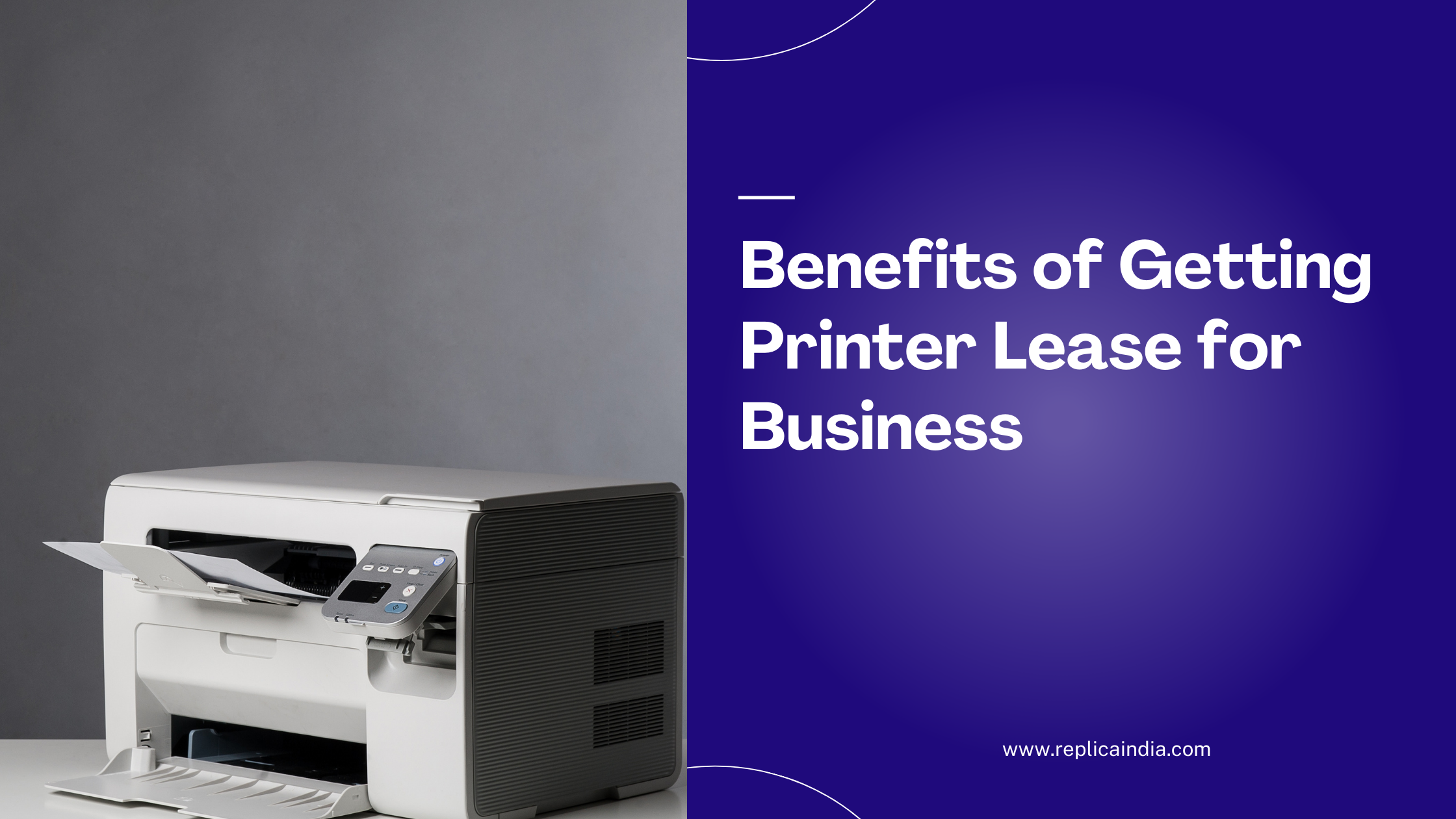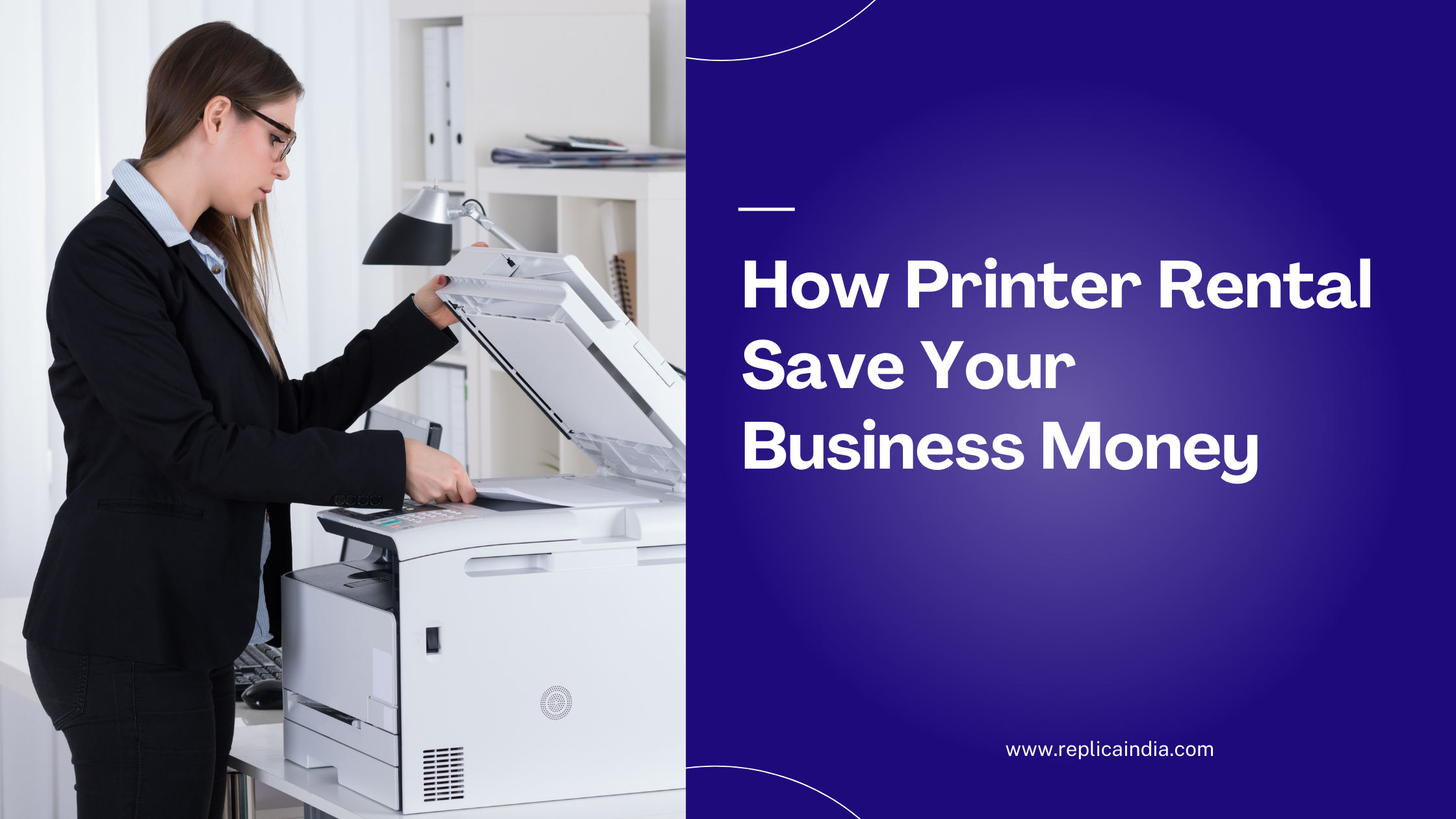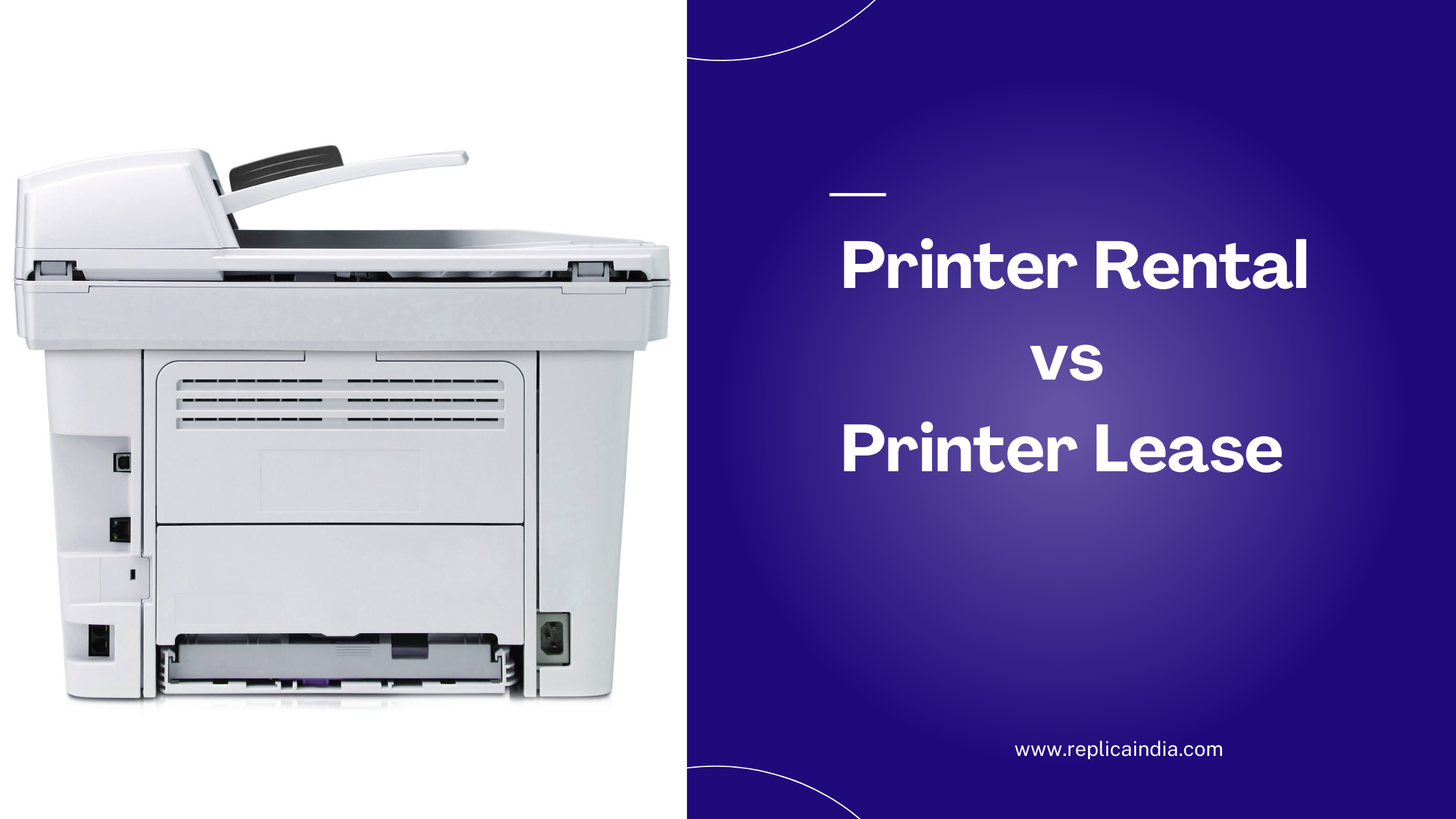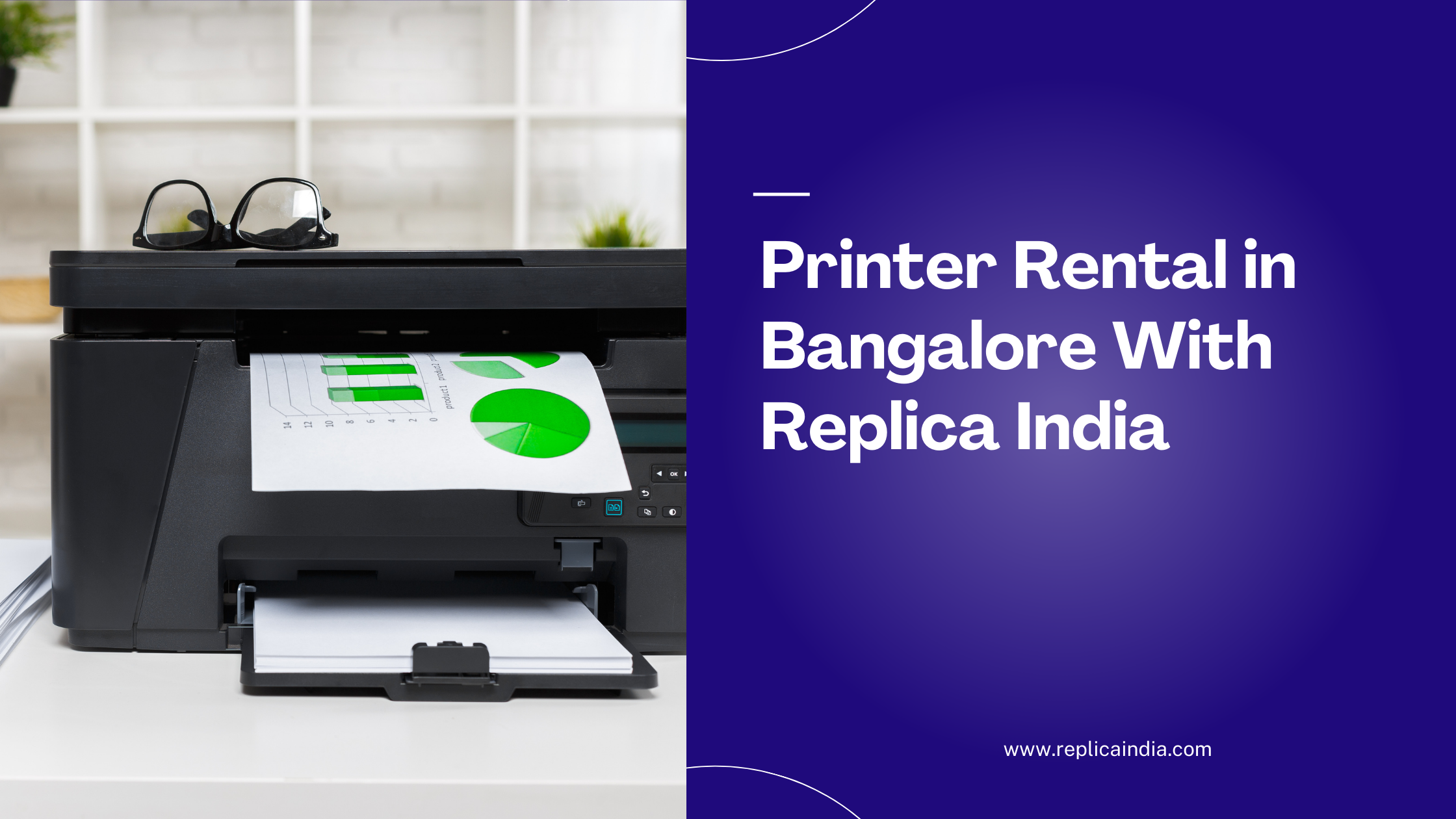In today’s fast-paced business environment, having reliable office equipment is crucial for maintaining productivity and efficiency. Among the essential tools is a copier, which is indispensable for producing high-quality duplicates of important documents. For many businesses, renting a copier can be a more cost-effective and flexible solution compared to purchasing one outright. This guide will walk you through the key considerations for choosing the best copier on rent for your business.
This groundbreaking method, which allows for clear and accurate duplication of documents, has evolved to support the sophisticated needs of today’s businesses. By understanding the principles of Replica Xerography, you can better appreciate the capabilities and features of the copiers available for rent.
Best Copier on Rent for Your Business
Benefits of Renting a Copier
1. Cost Efficiency
Renting a copier eliminates the significant upfront cost associated with purchasing. This is particularly beneficial for small and medium-sized businesses that need to manage their cash flow carefully. Rental payments are predictable and can be budgeted easily.
2. Access to Advanced Technology
Technology in office equipment evolves rapidly. Renting allows you to access the latest models and features without the need for frequent purchases. This ensures your business always has cutting-edge technology to enhance productivity and efficiency.
3. Maintenance and Support
Most copier rental agreements include maintenance and technical support. This means that any issues can be quickly addressed without additional cost to your business. It also reduces downtime, ensuring your operations run smoothly.
4. Flexibility
Renting offers flexibility in terms of contract length and equipment upgrades. If your business needs change, you can easily switch to a different model or adjust your rental agreement to better suit your requirements.
Key Considerations When Choosing a Copier on Rent
1. Assess Your Business Needs
Start by evaluating what your business requires from a copier. Consider the following aspects:
- Volume of Copies: Estimate the number of copies your business makes daily, weekly, and monthly. This will help determine the copier’s capacity and speed you need.
- Type of Documents: Identify the types of documents you’ll be copying, such as text-heavy documents, images, or mixed content. Different copiers have varying capabilities in handling different document types.
- Features and Functions: Decide which additional features are important, such as scanning, faxing, wireless connectivity, and color copying.
2. Evaluate Copier Specifications
Once you have a clear understanding of your needs, you can start evaluating the specifications of different copiers. Key specifications to consider include:
- Print Speed: Measured in pages per minute (PPM), this indicates how quickly the copier can produce copies. Higher PPM is essential for businesses with high-volume copying needs.
- Print Quality: Measured in dots per inch (DPI), this determines the clarity and sharpness of the copies. Higher DPI is crucial for businesses that require high-quality image reproduction.
- Paper Capacity: Consider the paper tray capacity and whether the copier supports different paper sizes and types.
- Monthly Duty Cycle: This is the maximum number of pages a copier can handle per month without experiencing wear and tear. Ensure the copier’s duty cycle matches your business’s volume requirements.
3. Consider the Total Cost of Ownership
While renting is generally more cost-effective than buying, it’s important to consider the total cost of ownership. This includes:
- Rental Fees: Compare rental fees from different providers. Ensure that the fees fit within your budget and understand what is included in the rental agreement.
- Maintenance and Supplies: Check if maintenance, repairs, and supplies (like toner and paper) are included in the rental fee or if they are additional costs. Some rental agreements include all-inclusive packages that cover these expenses.
- Energy Efficiency: Look for energy-efficient models that can reduce your electricity bills over time.
4. Check the Reputation of the Rental Provider
The quality of service provided by the rental company is just as important as the copier itself. Research potential providers and consider the following:
- Customer Reviews: Read reviews and testimonials from other businesses to gauge the provider’s reliability and customer service.
- Service and Support: Ensure the provider offers comprehensive service and support, including timely maintenance and repairs.
- Flexibility: Look for providers that offer flexible rental agreements, allowing you to adjust terms as your business needs evolve.
5. Understand the Terms of the Rental Agreement
Before signing a rental agreement, thoroughly review the terms and conditions. Key points to consider include:
- Contract Length: Determine the length of the rental agreement and whether there are penalties for early termination or extensions.
- Upgrade Options: Check if the agreement allows for upgrades to newer models as they become available.
- Maintenance and Repairs: Confirm that maintenance and repair services are included and understand the process for requesting these services.
6. Test the Equipment
If possible, test the copier before finalizing your rental agreement. This will give you a hands-on understanding of its functionality and ease of use. Testing the equipment can also help you identify any potential issues or limitations.
Practical Scenarios
Scenario 1: Small Business
A small marketing agency needs a reliable copier for daily use. They require high-quality color printing for client presentations and marketing materials. Renting a mid-range color copier with a moderate monthly duty cycle and all-in-one functionality (copy, scan, print, fax) ensures they have the features they need without a large upfront investment.
Scenario 2: Large Corporation
A large corporation with multiple departments requires several high-capacity copiers to handle large volumes of documents. They opt for renting high-speed, high-capacity copiers with robust paper handling and advanced security features. The rental agreement includes regular maintenance and support, minimizing downtime and ensuring smooth operations.
Scenario 3: Seasonal Business
A seasonal business that only operates during certain months of the year finds renting to be the perfect solution. They rent high-quality copiers during their peak seasons and return them when not needed, saving on costs and avoiding the need for long-term storage.
Conclusion
Choosing the best copier on rent for your business involves careful consideration of your needs, budget, and the specifications of available models. By understanding the principles of Replica Xerography, you can appreciate the technological advancements that make modern copiers so effective. Whether you’re a small business, a large corporation, or a seasonal operation, renting a copier can provide the flexibility, cost-efficiency, and access to advanced technology that you need to maintain productivity and efficiency.
With a thorough assessment of your requirements and evaluation of rental options copier for rent you can select the perfect copier to support your business operations, ensuring you stay ahead in the competitive business landscape.




